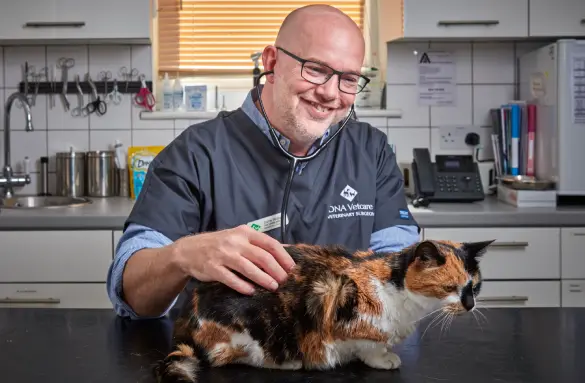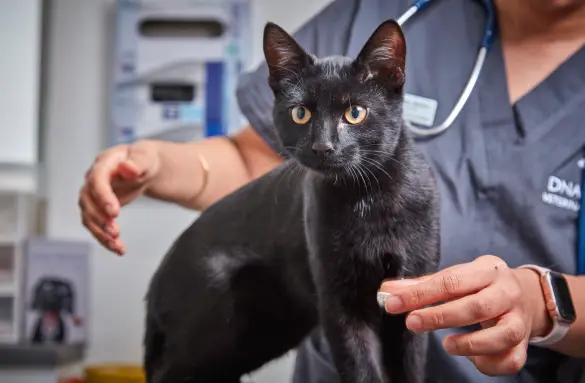Since June 2024, it has been a legal requirement for all cats over 20 weeks old in the UK to be microchipped.
However, even before this law came into effect, microchipping has always been a good idea to help keep your cat safe and ensure they can always find their way back home.
If your cat isn’t microchipped, you could face a fine of up to £500. Microchipping is a simple and effective way to protect your cat.


The importance of cat microchips
Microchipping is a quick, permanent, and reliable way of linking your cat to you, giving peace of mind that if they ever go missing or are found injured, they can be easily identified and returned home.
Unlike collars or tags, which can be lost or removed, a microchip provides lifelong security and greatly improves the chances of a safe reunion.
Cat Microchipping FAQs
Does it hurt a cat?
The procedure is quick and relatively painless, similar to a routine injection. Most cats tolerate it well, and no anaesthesia is required.
Are there any risks associated with cat microchipping?
Microchipping is a safe and widely used procedure with minimal risks.
Occasionally, a chip may migrate slightly under the skin, but this does not cause harm and does not affect its functionality.
How much does it cost to microchip a cat?
At The Vet on Richmond Hill, cat microchipping is an affordable one-time expense. To view our prices, click here.
What happens after your cat is microchipped?
Once your cat is microchipped, your details will be registered in a national pet database. You will receive confirmation of the registration, and it’s important to check that your information is correct.
How to tell if a cat has been microchipped?
If you’re unsure whether a cat has been microchipped, a vet or animal shelter can scan them with a microchip reader.
There are no visible signs of a chip, so a scan is the only way to confirm.
Do all cats have to be microchipped?
Yes, under UK law, all cats over 20 weeks old must be microchipped. If your cat isn’t microchipped, you may be given 21 days to comply before facing a fine.
What happens if I lose my cat?
If your cat is found and taken to a vet or shelter, they will scan the microchip and contact you using the registered details. This dramatically increases the chances of being reunited with your cat.
What if my contact details change?
It’s essential to keep your details up to date in the microchip database. If you move house or change phone numbers, contact the database provider to update your information.
Failing to do so could make it harder to reunite with your cat if they go missing.
Book your cat’s microchipping appointment today
Don’t wait until it’s too late – protect your cat with a simple and effective microchip.



